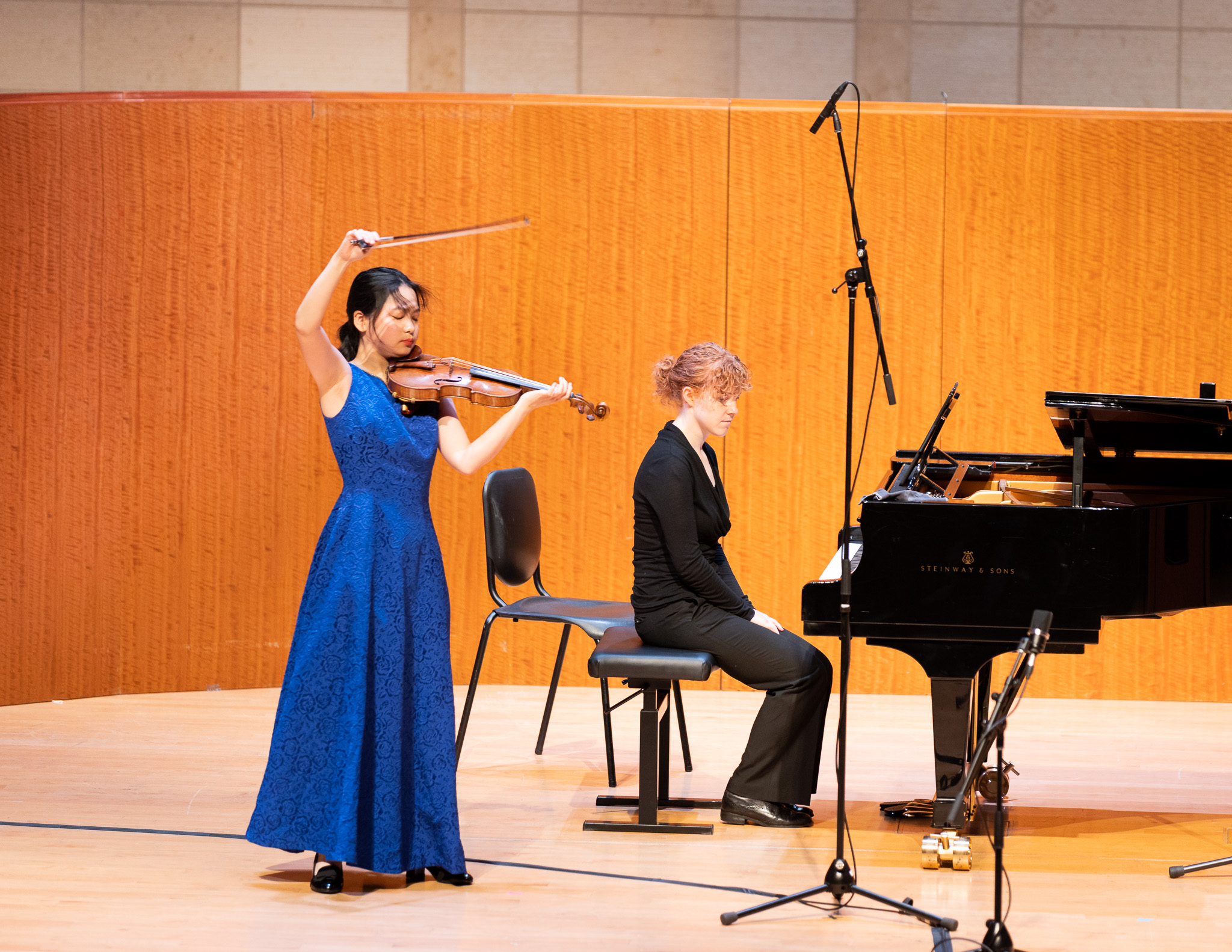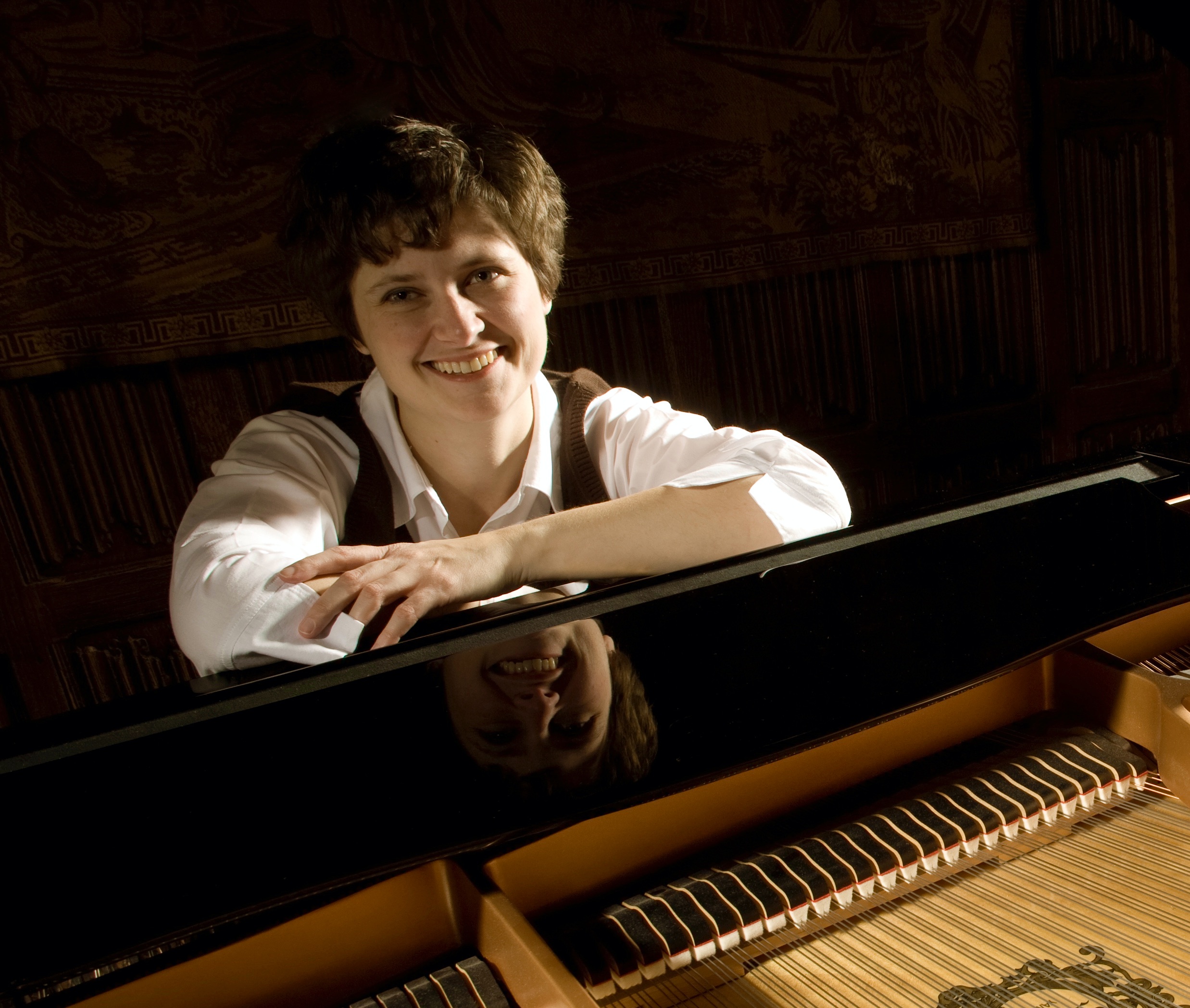Competition Composer
We have always believed that all musicians need to know the language of the music of their own time. Music continues to evolve and progress by absorbing the history, culture and sensibilities of the world around the composers and performers. Music exists, in part, to express the experiences of the present moment.
For these reasons, the Klein Competition requires applicants to perform 20th/21st Century works, to demonstrate facility in performing music of the present. In addition, we have commissioned excellent composers to create new works to challenge the imagination and technique of our performers at the Competition. The Commissioned Works ask each performer to create an individual concept of a previously unperformed composition, and make this new piece their own expressive vehicle. Hearing how each individual interprets this new music enables the listeners to learn a great deal about the contestant’s abilities and expressive inclinations.

2026 Composer: Suzanne Sorkin
 Suzanne Sorkin’s music “spoke in emphatic oratorical terms” (New York Times) and its “darting lines unfolded alluringly” (New York Times). She enjoys working closely and collaboratively with performers to craft works that are virtuosic, personal, and deeply expressive. She has received awards and commissions from the Fromm Music Foundation at Harvard University, Chamber Music America, Jasper Chamber Concerts, Chamber Music Quad Cities, Chamber Music Now, Violin Futura, Third Millennium Ensemble, counter)induction, American Composers Forum, ASCAP, Meet the Composer, and others.
Suzanne Sorkin’s music “spoke in emphatic oratorical terms” (New York Times) and its “darting lines unfolded alluringly” (New York Times). She enjoys working closely and collaboratively with performers to craft works that are virtuosic, personal, and deeply expressive. She has received awards and commissions from the Fromm Music Foundation at Harvard University, Chamber Music America, Jasper Chamber Concerts, Chamber Music Quad Cities, Chamber Music Now, Violin Futura, Third Millennium Ensemble, counter)induction, American Composers Forum, ASCAP, Meet the Composer, and others.
Her compositions have been performed throughout the United States and abroad in a number of prominent festivals and concerts, including Music on the Edge, Piano Spheres (Los Angeles), Washington Square Contemporary Music Society, Mendelssohn-Gesellschaft Berlin, Denison University New Music Festival, Chamber Music Quad Cities, Florida State University Festival of New Music, and Vassar Modfest. She has written for ensembles and soloists including Mannes Trio, Lang-Rainwater Project, Jasper String Quartet, andPlay, pianist Thomas Sauer, pianist Elizabeth Morgan, Cleveland Chamber Symphony, Melomanie, Third Angle, and Aspen Contemporary Ensemble. Residencies awarded to her include Millay Colony for the Arts, Virginia Center for the Creative Arts, Ragdale Foundation, Artists’ Enclave at I-Park, ART342, Brush Creek Foundation for the Arts, Kimmel Harding Nelson Center, and Atlantic Center for the Arts.
She received her Ph.D. in music composition from the University of Chicago through the support of a four-year Century Fellowship in the Humanities. Her principal composition teachers have included Shulamit Ran, Marta Ptaszynska, John Eaton, and Justin Dello Joio.
A passionate and dedicated educator, Suzanne Sorkin taught composition, music theory, and music history at Vassar College. She is currently an Associate Professor of Music at Saint Joseph’s University in Philadelphia, where she teaches composition and music theory, co-directs the music industry program, and holds the Dirk Warren ‘50 Sesquicentennial Endowed Chair (Humanities and Performing Arts).
Past Composers
Giancarlo Aquilanti
Lisa Bielawa
Ronald Caltabiano
Theodore Dollarhide
Richard Festinger
Joel Friedman
David Froom
Robert Gibson
John Harbison
Joel Hoffman
Dick Hyman
Gloria Justen
David Liptak
Jeffrey Miller
Paola Prestini
Gity Razaz
Elena Ruehr
Carlos Simon
Frank Stemper
Reynold Tharp
Sakari Dixon Vanderveer
Mark Volkert
John Wineglass
